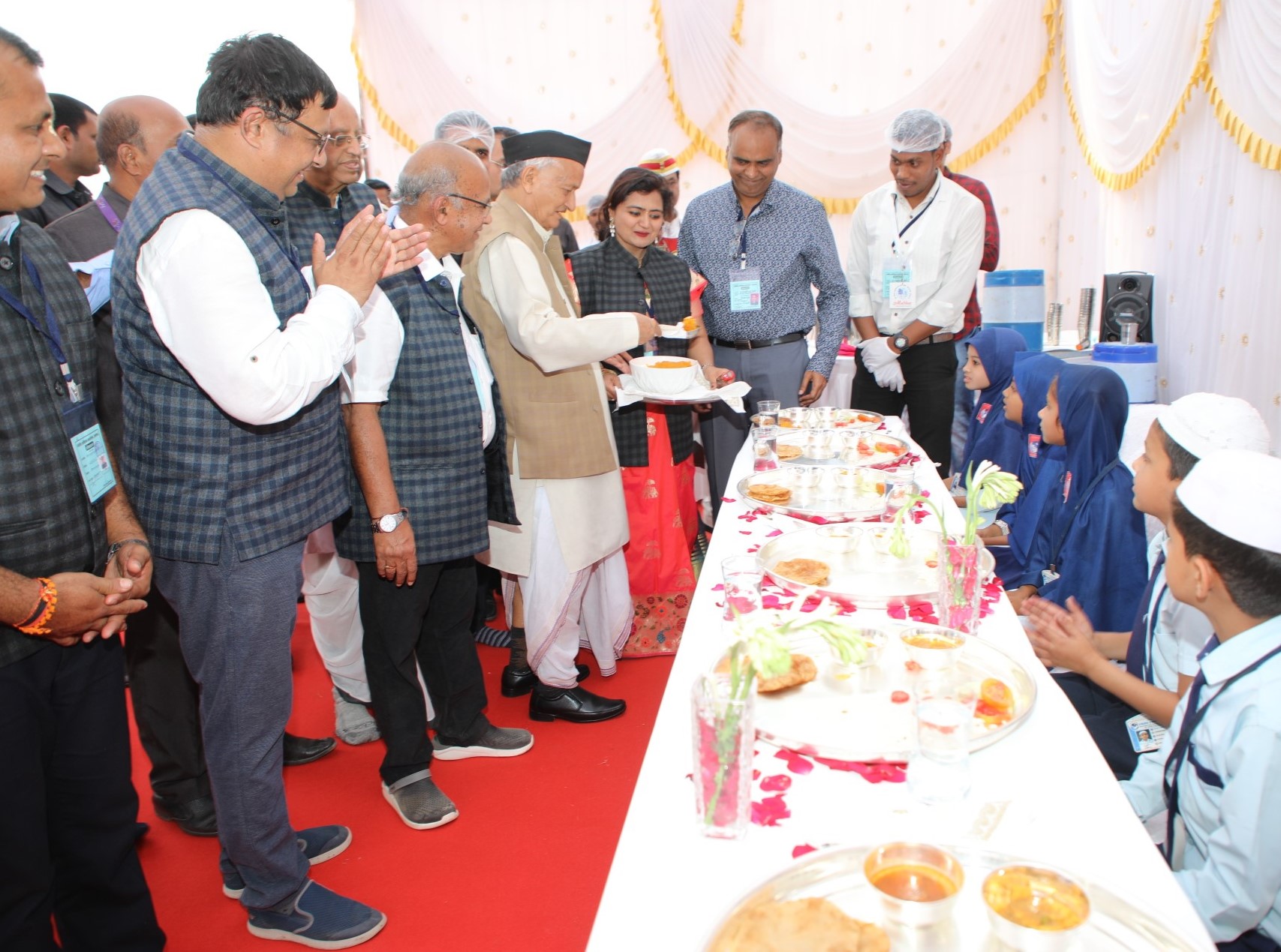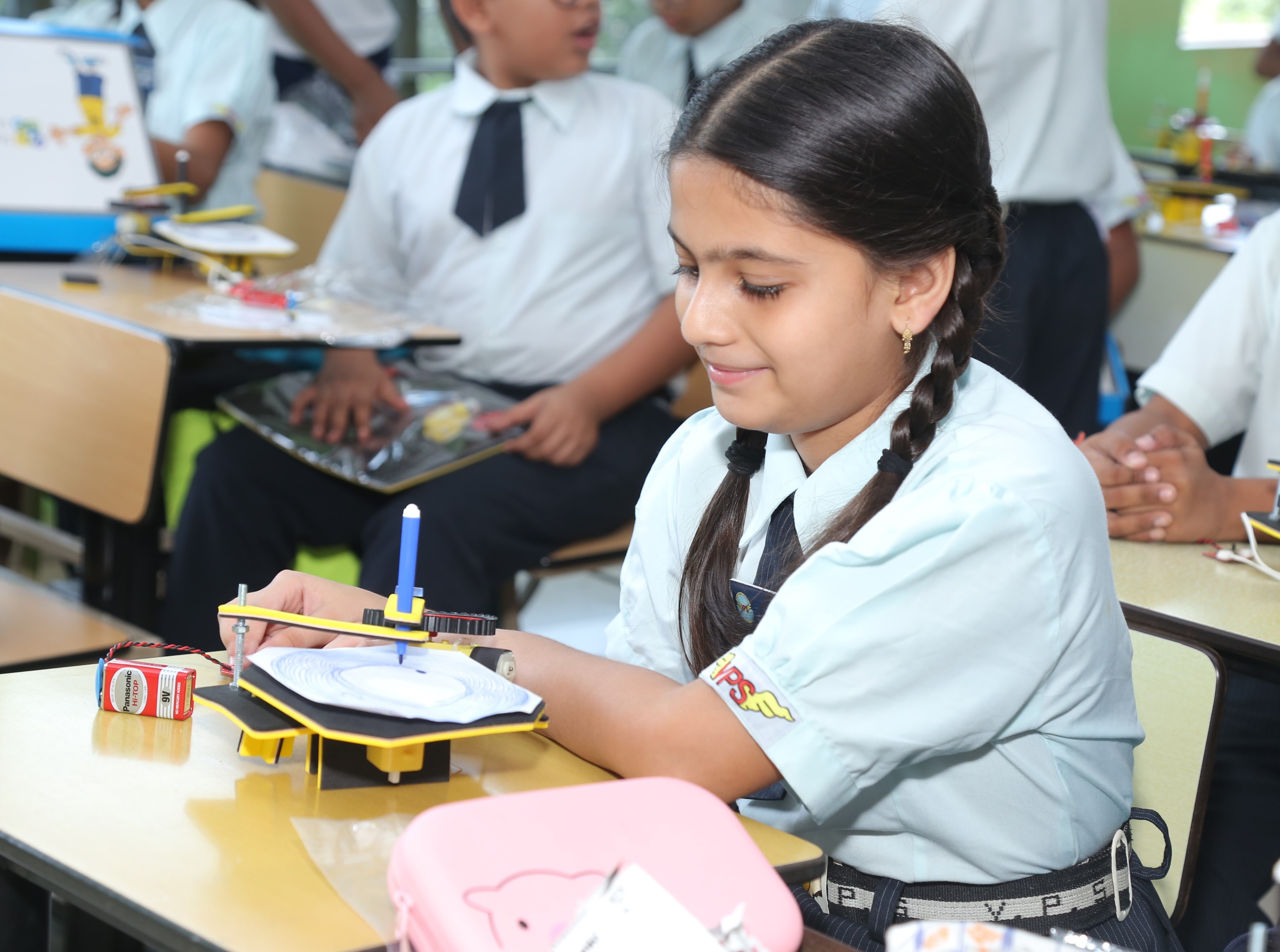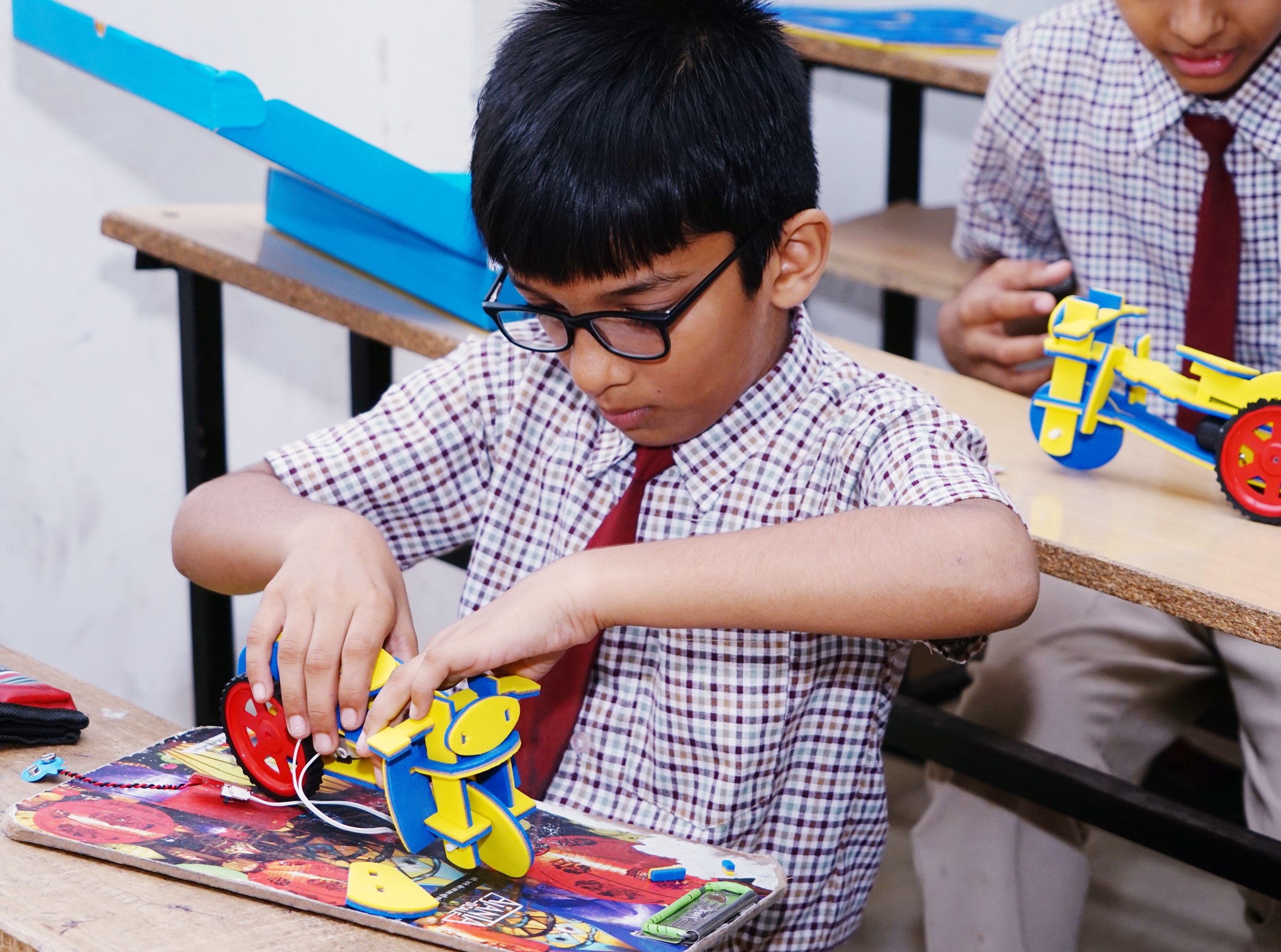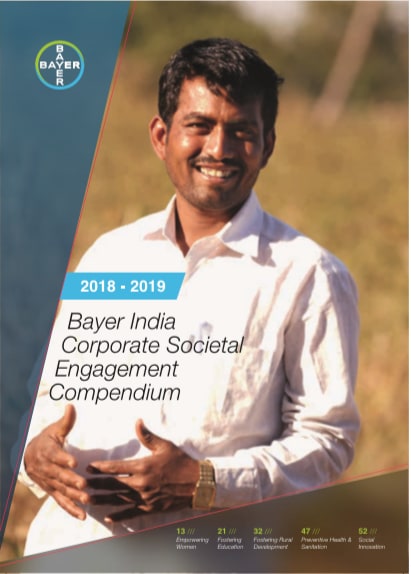Engaging for a Better Life

Bayer’s societal engagement involves helping those in need and working towards putting an end to hunger to help everyone lead a healthy life. Bayer also places great emphasis on supporting education and inculcating the love for science in its societal environment, as education is also one of the most important preconditions for long-term prosperity for society as a whole.
Midday Meals
When addressing the concept of illiteracy in India, one of the first things that come to our mind is hunger. To eradicate hunger and illiteracy, the Government of India introduced the mid-day meal scheme that feeds children at school-going age, so that they can concentrate better while studying.

Spread across an acre of land, the ‘Padma Bhushan Dr. Badrinarayan Barwale Centralized Kitchen’ has a capacity to serve healthy and hygienic mid-day meals to over 50,000 children and adheres to food safety standards and ISO compliances. The kitchen is automated with a mechanical conveyor, automated hopper, cooking cauldrons, idly unit, vegetable cutting equipment thereby ensuring hygiene and safety during the entire cooking process. The kitchen also houses a food testing lab to ensure safe raw material usage and nutritious food to the children.
This mechanized centralized kitchen financially aided by Bayer was inaugurated by His Excellency, Governor of Maharashtra, Shri Bhagat Singh Koshyari in February 2020 at Jalna, Maharashtra.
As a part of the ‘School Nutrition Project’, the ‘Padma Bhushan Dr. Badrinarayan Barwale Centralized Kitchen’ serves healthy and balanced meals to children who have limited or no access to food and lack awareness on the importance of the same in their daily diet.
The ‘School Nutrition Project’ is a two-pronged effort that addresses on one hand the challenges of malnutrition and classroom hunger, while on the other hand, helps educate underprivileged children thereby reducing dropouts, illiteracy and poverty.
To address classroom hunger and malnutrition and increase attendance and retention of children in schools, over 10,000 school children have been supported by Bayer with a midday meal, on every working day in 2019 - 2020.
Fun with Science

Bayer’s Making Science Make Sense® is a company-wide initiative that aims to advance science literacy through hands-on, inquiry-based science learning, employee volunteerism and public education. The program provides school students with an insight into everyday natural science phenomena with the help of all kinds of fascinating experiments.
As a Life Science company, Bayer has its foundation in science and innovation. This gives Bayer a unique understanding of the integral role science plays in everyday life. Bayer and its MSMS partners are dedicated to changing the way science is taught and learned both in and out of the classroom. At Bayer, it's about making science more accessible and less intimidating – to kids and adults.

The recipe for the success of “Making Science Make Sense” is as simple as it is effective: Bayer employees take time out to visit schools, armed with hands-on science such as experiments that school children can try out themselves and understand the science behind them.
Together with a knowledge partner, the company has designed the program in a specific way that includes live demonstrations, experiments, audio-visual tools and interactive sessions to enhance the learning experience and make sure that science is taught in a way that's enjoyable and fun. MSMS is conducted for children from Class V & VI (age 10 & 11), as it is in these years that science is introduced in schools as a full-fledged subject.
In 2019, the program was conducted in Himatnagar and Vapi, Gujarat and covered over 1300 students.
In India, the Making Science Make Sense program has been able to inspire a large number of students and inculcate in them the love for science. Over 75,000 students have already benefited from the program since 2007, across the country in cities like Mumbai, Ankleshwar, Greater Noida, Vapi and Himatnagar.
Watch the video to know more :






